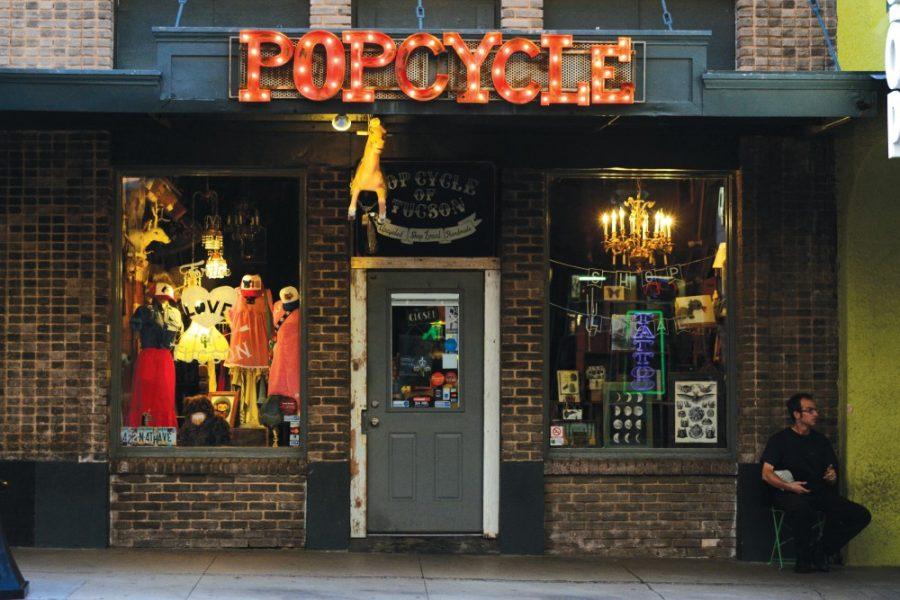Being “green” can come in many different strains, and art is most certainly one of them. With Tucson’s slowly progressing revolution toward becoming increasingly sustainable, recycled and up-cycled art have gained more and more presence in the desert community.
One of the most up-front and deliberate venues where these up-cycled creations can be found is none other than local up-cycled-art paradise, Pop-Cycle.
Located on Fourth Avenue, Pop-Cycle is a funky little shop selling merchandise made by recycling old, unwanted materials and turning them into pop-cultural, vintage-looking and new-age art masterpieces.
Jennifer Radler,co-owner of Pop-Cycle and artist who goes by the alias Monster Booty Threads, emailed The Daily Wildcat to share a little bit about her store and just what it means to up-cycle.
“When we first opened in 2008, I would hear people walking by saying, ‘That’s that store with recycled stuff,’ and now I hear the same thing only with an excitement and enthusiasm that was absent in the beginning,” Radler wrote. “I feel that we have inspired many artists to change their medium and encouraged our customers to see the beauty of owning something new that has been made from recycled materials.”
Pop-Cycle focuses on more than just up-cycling and sustaining the environment, though. Its owners also work with Tucson’s businesses and community members to help strengthen the local small-business scene.
As people who have started their own business and who survived the economic crash, Radler and the rest of the Pop-Cycle owners are very aware of the local businesses and opportunities around them.
“It helps everyone when you buy reclaimed materials from local thrift stores that provide a service to the community, or pick up materials that were headed for the landfill and make something new and beautiful with those materials,” Radler wrote.
Radler expressed she thinks the Tucson community is actually starting to become environmentally conscious.
“This community is really starting to think green,” she wrote. “We have abundant sunshine for solar power and there are many classes on harvesting rain water as well as many eco-conscious farmers in the area! [But]wow, there are so many things that we can do better.”
Needless to say, Pop-Cycle is definitely a leading force that drives Tucson to become a more eco-friendly city, one piece of artwork at a time.
Radler wrote that each community member needs to do their part to alleviate stress put on the environment—herself included.
“I like to bombard my children’s art teacher with tons of recycled supplies to encourage our children to think about ‘stuff’ differently,” she wrote. “We have become a throw-away society that encourages us to buy poorly made items, use them until they break and then buy new things. It’s the opposite of what we need to be doing to really make a difference.”
Radler invites the Tucson community to become involved, support local, green art and check out the funky up-cycled art Pop-Cycle has to offer.
Follow Thea Van Gorp on Twitter.









